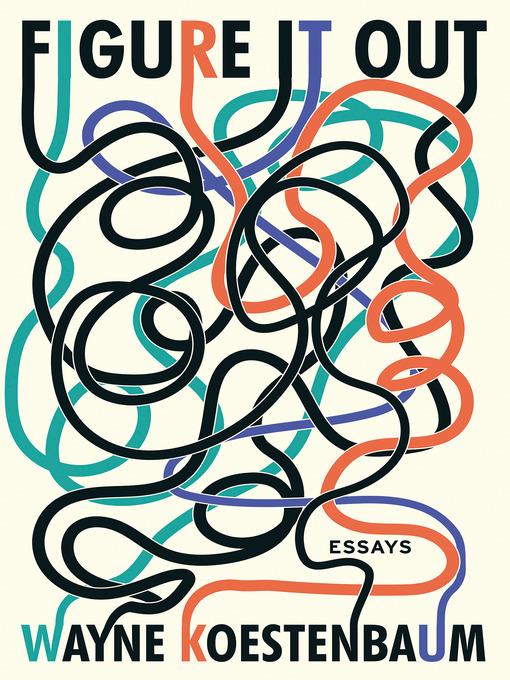
Figure It Out
Essays
کتاب های مرتبط
- اطلاعات
- نقد و بررسی
- دیدگاه کاربران
نقد و بررسی

January 6, 2020
Koestenbaum (Camp Marmalade), a poet and novelist, presents 26 nonfiction pieces, most previously published, in this inventive but self-absorbed collection. Spiraling in structure and dizzyingly varied in theme, the essays are peppered with reveries and fantasies, suggesting a kind of ramble through Koestenbaum’s consciousness. He muses about artists of all sorts—writers, painters, singers, composers, sculptors, photographers, and filmmakers—and his eye may be caught by Picasso or Giacometti, or his ear by the recordings of Vladimir Horowitz or the compositions of Iannis Xenakis. He ponders how Emily Dickinson elides the boundaries between prose and poetry, and takes on “Punctuation” with a nod to, among others, Hannah Arendt, whose writing displays the “weight of parenthetical information, subordinate yet urgent.” “Occasionally,” Koestenbaum opines, “I intend my writing to be comic,” particularly in his faux advice columns, including the title essay and “18 Lunchtime Assignments.” Themes of sexuality and gender are pervasive, typically in eye-catching declarations —“I want the liberty to use the word penis as a mutating signifier”—which some may find provocative, others tiresome. There’s fun and games and erudition throughout, but one has to be a card-carrying Koestenbaum fan to get into the full spirit of this assemblage.

February 1, 2020
Writer, musician, and cultural critic Koestenbaum (English, French, and Comparative Literature/CUNY Graduate Center; Camp Marmalade, 2018, etc.) offers up another batch of personal essays published in a variety of venues.These forays into the author's extravagant imagination, published in Bookforum, the Believer, Tin House, and elsewhere, cover both new and familiar territory: art, film, autobiography, sex, celebrity ("I'm a lifelong student of star culture"), French author Hervé Guibert, and Picasso's lines ("perfect, impossible"). In "No More Tasks," Koestenbaum writes that the "writer's obligation in the age of X is to play with words and keep playing with them." In the rambling "Beauty Parlor at Hotel Dada," a long sequence of largely unconnected thoughts, the author hints at his methodology: "Individual sentences may be choppy and sometimes repetitive, but through accumulation, the whole acquires a strange momentum and inevitability--even amid the deadness." Koestenbaum also chronicles "My Brief Apprenticeship with John Barth," an enjoyable, admiring assessment of how Barth the teacher influenced and inspired Koestenbaum's writing. "Composed in 'crots, ' a rare term I learned from Barth," this essay and others "leap from crot to crot, at liberty; connections arise through juxtaposition, not through direct statement or overt linkage." The author offers sly ruminations on punctuation and style with sidebar examples from a wide array of artists and writers. For example, Marguerite Duras' sentences "tear themselves apart before they can achieve assembly." In "Riding the Escalator With Eve," he implores, "please everyone start reading Tendencies," by queer theorist Eve Kosofsky Sedgwick. The author argues that Adrienne Rich "should have won a Nobel." She had "an ear for the music that politics makes in the body." This kind of prose could be overly chaotic in the hands of a lesser writer, but Koestenbaum has a knack for mostly keeping things together with sincerity, surprises, and wit. A little Koestenbaum goes a long way--best taken in small bites.
COPYRIGHT(2020) Kirkus Reviews, ALL RIGHTS RESERVED.

























دیدگاه کاربران